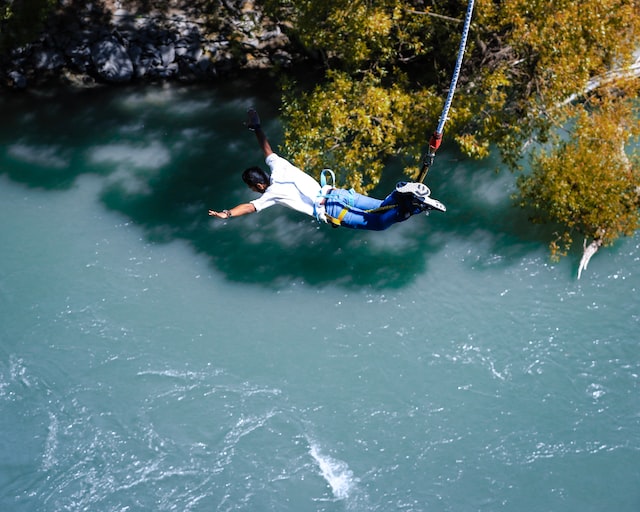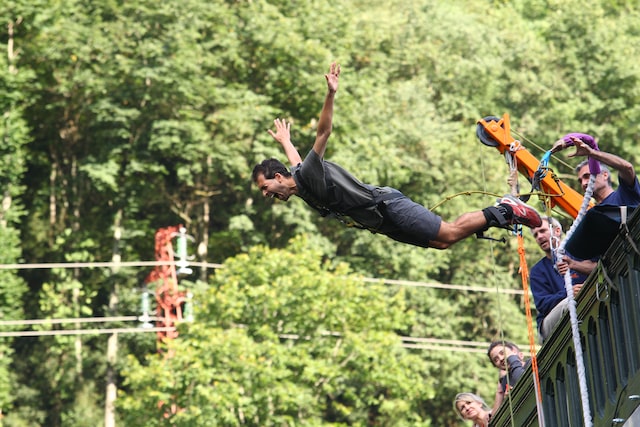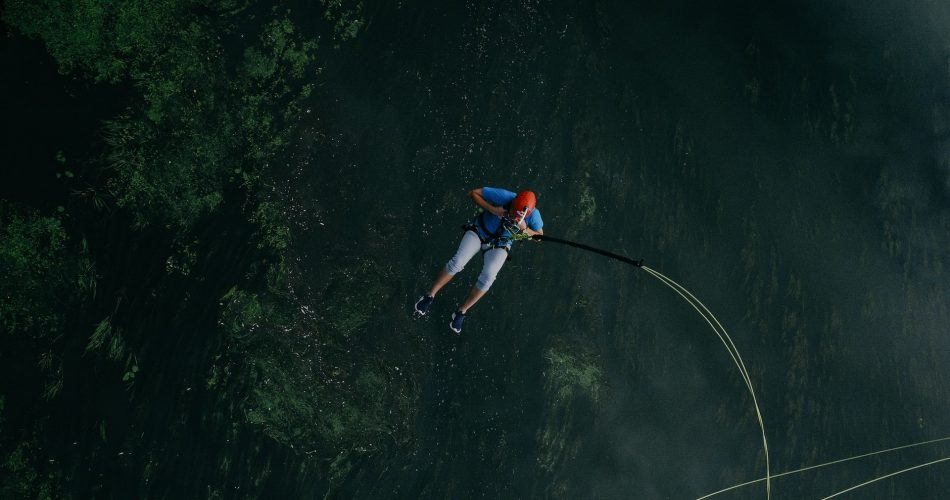There is no legal age limit for bungee jumping in the United States. However, it is important to understand the risks associated with the sport. For instance, bungee jumpers can have a heart attack if their heart is weakened, or can experience retina damage, or hemorrhages. Some bungee sites are set up to minimize the risk of injury, but bungee jumping is still a dangerous activity.
The most basic bungee jumping rule is that you must be at least three feet six inches tall to take part in this activity. You must also have a body weight of at least 80 pounds to participate, but the minimum and maximum weights vary from site to site.

Photo by Anoof Junaid on Unsplash
Another bungee jumping law is that a person must have a valid Id to participate in a jump. This is in addition to the health requirements. Before participating in a jump, participants must be free of cardiac conditions, as well as show that they have no history of any kind of medical problem.
Some operators require that participants over the age of 65 prove their fitness before booking a jump. These companies may also require a doctor’s release if the jumper has a medical condition.
For younger jumpers, you should always have the consent of a parent or guardian. You can bungee jump with your parent’s permission, as long as you’re in good physical shape. Alternatively, you can opt to take a bungee course, which will train you to be a good bungee jumper.
In the UK, a bungee jumper must be at least fourteen years of age. If you’re a teenager, you’ll need the written consent of a parent or guardian to participate in a bungee jump.
Whether you’re a kid or a grownup, bungee jumping can be a thrill. The thrill is enhanced if you do your research and find a bungee site that uses the latest safety standards. Make sure you pay attention to the instructions and know the dangers. Once you’ve made the decision to bungee jump, the best way to keep yourself safe is to listen to the crew members, who will guide you through the experience.

Photo by Simon Billy on Unsplash
A few other safety tips: Don’t wear jewelry or loose clothing when bungee jumping. Invest in protective eyewear and contact lenses. Also, be aware that bungee sites are open hours before a scheduled jump. Try to arrive at least an hour in advance. Never take a shortcut and be prepared to answer questions.
Most operators will ask you to sign a waiver, and you’ll need a parent’s or guardian’s signature on the letter. Some sites will allow a minor to participate in a bungee if their parent has given them permission, while others will refuse a young person. Be aware of the perks and drawbacks of the sport, and make sure you aren’t afraid to ask the right questions.
Lastly, it’s a good idea to check with your health care provider about any medical issues you may have, including allergies, diabetes, and other cardiovascular problems. Certain conditions, such as epilepsy, may make bungee jumping unsafe for you.
